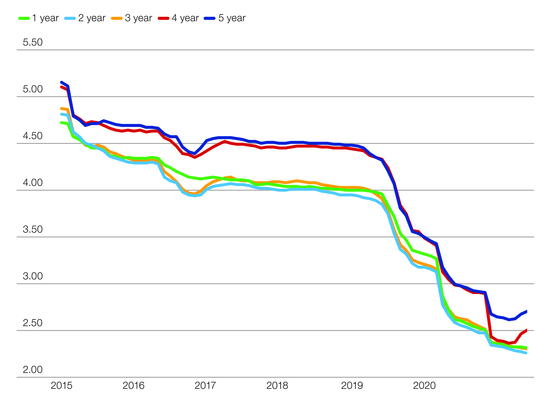
For many people, debt is a dirty word. But not all debt is created equal. There’s good debt and there’s bad debt, and then there’s the good debt that can get pretty ugly if it’s not managed properly. Learning to use debt intelligently could make all the difference to your personal bottom line.
Good debt
Debt is considered good when it helps you buy wealth building assets. That can be an asset that grows in value over time and /or provides you with income.
Borrowing is often referred to as leverage because it helps you get more for your money.
Shares and property are regarded as growth assets because, when chosen well, they should grow in value over time. Shares can also offer regular dividend income while investment property provides rental income. In both cases, the income you receive can be used to help meet your loan repayments.
In many instances you can also claim a tax deduction on the interest paid on your investment loan.
Bad debt
Debt is bad for your wealth when you borrow to buy assets that fall in value, don’t provide any income and are not tax deductible.
Using a credit card or a personal loan to pay for holidays or expensive toys is an example of bad debt.
The trouble with bad debt is that you can often be paying for it long after the holiday has worn off or that new car has halved in value. If your bad debt is on a credit card, then it can be all too easy to let the debt roll over each month.
When bad debt turns good
Used well, bad debt can be put to good use. If you are disciplined and pay off your credit card in full each month this can help you manage your cash flow. It might also allow you to leave money sitting longer in a high interest savings account.
Credit card debt turns ugly when you buy things you can’t afford and pay only the minimum repayment each month. Because of the high interest rates that apply to credit cards, your initial debt can balloon and take many years to clear.
When good debt goes sour
Using good debt to pay off bad debt could also cost you dearly. Say you consolidate your debts by increasing your mortgage. The end result could be that you spread the cost of that debt over 20 years or more, dramatically increasing your total interest payments into the bargain.
The family home
Buying a home to live in will not provide you with income but it can still be regarded as good debt. Not only is it a form of enforced saving but in time it may also be used as leverage to fast track your wealth creation.
Once you build up equity in your home you can use this as security to take out an investment loan. Any income you earn from your investments— your good debt — can be used to make extra repayments on your mortgage. This can accelerate paying off your home loan and free up cash for more investments.
A power of good
Whether debt is good or bad, it’s generally wise to clear it as quickly as possible. Pay off your bad debts first – beginning with the debt that has the highest interest rate – as you should be able to take advantage of the tax concessions that may be available on your good debt.
In years gone by it was common to wait until you had saved up for what you wanted. Nowadays the ease of obtaining credit can lead to reckless behaviour. But there’s still an important place for good debt.
Given most of us will spend many years in retirement and would like to be self-funded, borrowing to accelerate wealth can be a very successful investment strategy. It’s just important to remember to keep bad debt to a minimum and make sure you use good debt wisely — otherwise it can all turn a little ugly.
Suite 2, 1 Railway Crescent
Croydon, Victoria 3136
Telephone: 03 9723 0522
Email: integrityone@iplan.com.au
This information is of a general nature and does not take into consideration anyone’s individual circumstances or objectives. Financial Planning activities only are provided by Integrity One Planning Services Pty Ltd as a Corporate Authorised Representative No. 315000 of Integrity Financial Planners Pty Ltd ABN 71 069 537 855 AFSL 225051. Integrity One Planning Services Pty Ltd and Integrity One Accounting and Business Advisory Services Pty Ltd are not liable for any financial loss resulting from decisions made based on this information. Please consult your adviser, finance specialist, broker, and/or accountant before making decisions using this information.





